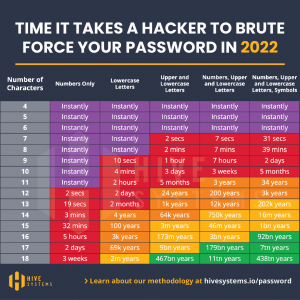What does retirement actually look like? Some people might say they will literally “turn in their papers”, go home, then putz around the house and tinker with projects for the rest of their life. Others might say they want to travel the world. Some might say they don’t actually want to “retire”, but would rather transition to work they are passionate about, without having to worry about what kind of income they receive. The bottom line is that we tend to have some idea of what we dream it to be. The problem is, there are factors that can contribute to turning our dreamy retirement into a complete nightmare.
Trying to predict that our retirement will end up being exactly as we have planned it to be is like shooting an arrow towards a bullseye as we are blindfolded. It COULD happen, but there are a lot of “what ifs” circling around our idea of a perfect retirement. For instance, what if we retire and expect to putz around the house doing projects for the rest of our life, and find that by week three we are bored out of our mind, yet we didn’t prepare or invest in doing anything different? What if we expected to travel the world, but before retiring, develop health issues that prevent us from being able to do so? The “what ifs” can be a real game changer, not only to what we get to do, but how we would be prepared to pay for it.
Here are some tips to consider when thinking about how to prepare for retirement:
Retirement vs. Financial Independence. Trying to decide now, at our current age, what retirement has to be can be quite stressful. Maybe we don’t have a clue what it should look like in regards to activities and how we will spend our time. So instead of trying to define what retirement might look like, maybe focus on working towards financial independence. Financial independence means over the course of a long-term, disciplined effort, we work with our advisors to help us make financial and protection planning decisions that lead to financial strength over time. Disciplined effort and long-term commitment are key factors when trying to build financial security. This might prove helpful with preparing for whatever retirement ends up looking like.
Planning before Investing. There are thousands of licensed financial professionals whom would love nothing more than to manage our assets by investing in the market. Many go into this with the sole goal of simply “growing assets”. They tend to focus on returns, and believe that we only want to hear that our investments are “going up” consistently. Seeing our account values “go up” is all the satisfaction they think we desire. And with that, they tend to feel like we are on track for retirement. BUT, this is not a guarantee. We can’t predict or control the markets, so this is an example of shooting that arrow blindfolded, hoping we land in the middle. Instead, consider focusing on what your assets need to DO. What job do our assets have? Knowing what the job is upfront will help us make more informed decisions not only on how to invest, but with what kind of risk we can afford to subject ourselves to. Risk management might prove just as critical as growing assets.
Start NOW! Financial planning for retirement could prove far more difficult if we wait to the last minute, vs. making effort starting now. It might seem daunting to think we have to “do everything at once”, but focusing on our future needs is just as important as focusing on our current needs. It might seem difficult to do everything at once, but that’s why working with a financial advisor who values planning prior to investing blindly might prove helpful.
We are all unique in what our lives and dreams are. And whether we are focused on exactly what we want retirement to be, or simply have no idea, the common theme is that the closer we are to having financial independence, the better chance we have of being more prepared. Financial independence shines the light on our options, which might help to make our dreams come true. And just like when we were kids in a dark room, the nightmares tend to not go away until we turned on the lights!


